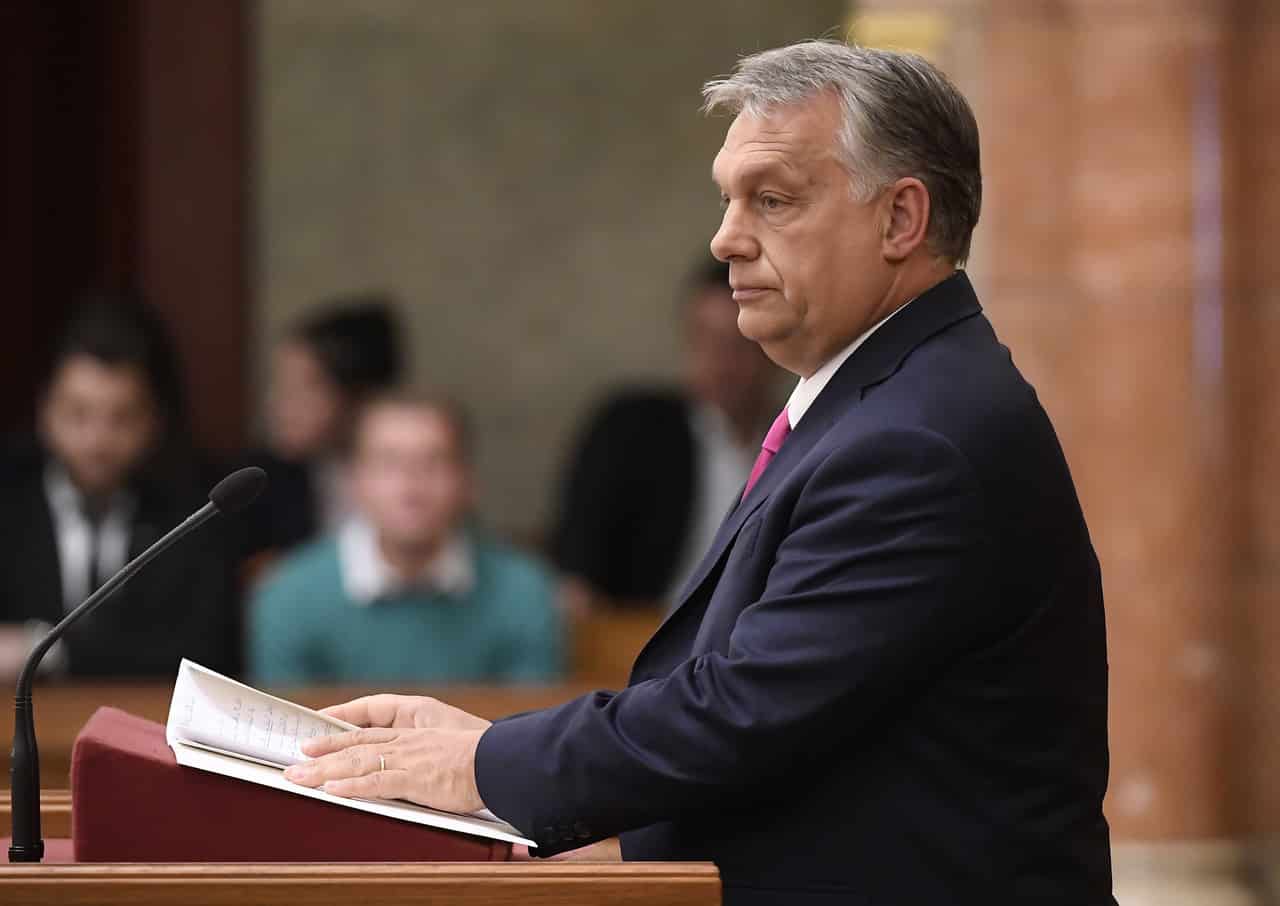Orbán: Government ready to work with cooperative local councils – UPDATE

The government is ready to “cooperate with all mayors and local councils that are themselves ready to cooperate,” Prime Minister Viktor Orbán said in parliament’s opening autumn session on Monday.
Referring to the recent local elections, Orbán said that “everybody, regardless of party affiliation, must work for Hungary and the Hungarian people.” “The nation cannot be in opposition,” he added.
Concerning the election results, Orbán said it was “a great honour” for the ruling parties to have captured over 50 percent of votes nationwide. This equals an endorsement of the government’s major policies, he said, enumerating among them a work-based and pro-family economy, higher wages, help for young people to buy or renovate homes and national cohesion.
He said the government had “lived up to its responsibilities in terms of organising and conducting the election to the satisfaction of the public” and thanked voters who took part in the elections, thereby “contributing to the functioning of Hungarian democracy”. “Hungarians are still committed to democracy and believe in Hungary’s future,” he said.
Orbán said
the government’s family protection action plan was gaining momentum, with more than 65,000 people having joined the scheme.
Altogether, 650 billion forints (EUR 1.96bn) of funding has been channelled towards families, he added.
The economy has responded positively to this policy, he said, recording growth of 5.2 percent in the first half.
“We switched to a job-based economy and the unemployment rate has dropped to 3.4 percent, while the number of jobs has increased by 808,000 since 2010,” he said,
adding that 4.5 million people have jobs in the country. Orbán said nevertheless the government “wants more and better”, and intends to catch up with the Czech Republic in this regard.
The prime minister said that in the first seven months of the year average wages had increased by 10.6 percent, while the rise in the minimum wage was the fourth highest in the EU.
Orbán also noted big changes in government debt, which has fallen to 68 percent to GDP. And whereas in 2010 foreign currency loans accounted for 50 percent of the total, today they stand below 20 percent, he added.
Regarding the EU, Orbán said the incoming president of the European Commission was someone who could remedy the mistakes of previous years. He said he had felt obliged to prevent the election of a commission head who spoke disrespectfully of Hungarians, and who wanted to implement plans contrary to the will of Hungarians on migration. “We have achieved our goal,” he said.
On the topic of Brexit, Orbán said “a fair and just agreement” for the British had been made for their departure from the bloc. Also, an agreement had been struck that would protect the interests of Hungarians working in Britain.
At the same time, speaking about the EU accession prospects of North Macedonia and Albania, he said the EU council of ministers had rejected starting negotiations with the two countries. “This is a bad decision, but I hope it is not a tragic one,” he said. It would be tragic for Serbia, he added, if its prospects were blocked. Serbia, he said, was a “key country in our region and in terms of our stability”. Stabilising the Balkans would be impossible without EU membership, he said, adding that Hungary continued to support the accession of all Balkan countries, especially Serbia and Montenegro, as rapidly as possible.
Meanwhile, Orbán said Hungary’s economy could be made carbon neutral by 2050 by implementing radical schemes but “a significant contribution” from the European Union would be needed. A combined 150 billion euros will be needed to make Hungary’s energy production emissions free, to eliminate natural gas and to replace all traditional vehicles with electric ones, Orbán said.
On another subject, Orbán said that his European counterparts had started discussing the EU’s next seven-year budget. He added that “there is no consensus even on fundamental issues” and “the positions are wide apart in all important areas”.
During the prime minister’s address, independent MP Ákos Hadházy held up banners emblazoned with the slogans:
“Stop propaganda” and “Stop corruption”.
László Kövér, the house speaker, rebuked Hadházy and called on all opposition deputies to drop their “aggressive” and “militant” attitude. He said deputies should observe house rules and “refrain from making a circus out of parliament”.
Meanwhile, ruling party MPs curtained off protesting Hadházy’s signs with the national flag, then snatched them from his hands.
Orbán calls on local politicians to keep people’s interests in mind
He has sent a letter to Fidesz politicians in local authorities, and called on them to support the interests of their localities from all positions they are holding after the local elections earlier in October, website origo.hu said on Monday.
In the letter, Orbán said local officials should continue to stand up for the people “under all circumstances and fight bravely against bad decisions harming the people’s interests.”
Orbán pledged to continue to “build the country” in government by raising support for families with children, strengthening the economy, creating further jobs and cutting taxes on employment.
The results of the October 13 local elections show that the ruling Fidesz – Christian Democrat alliance is still Hungary’s strongest force, albeit the party has also incurred big losses, Orbán said.
Most of the party’s local politicians remain in government, he said. “Hungary will continue to be our priority,” Orbán said.
Local elections – Karácsony hails ‘historic victory’ in Budapest

